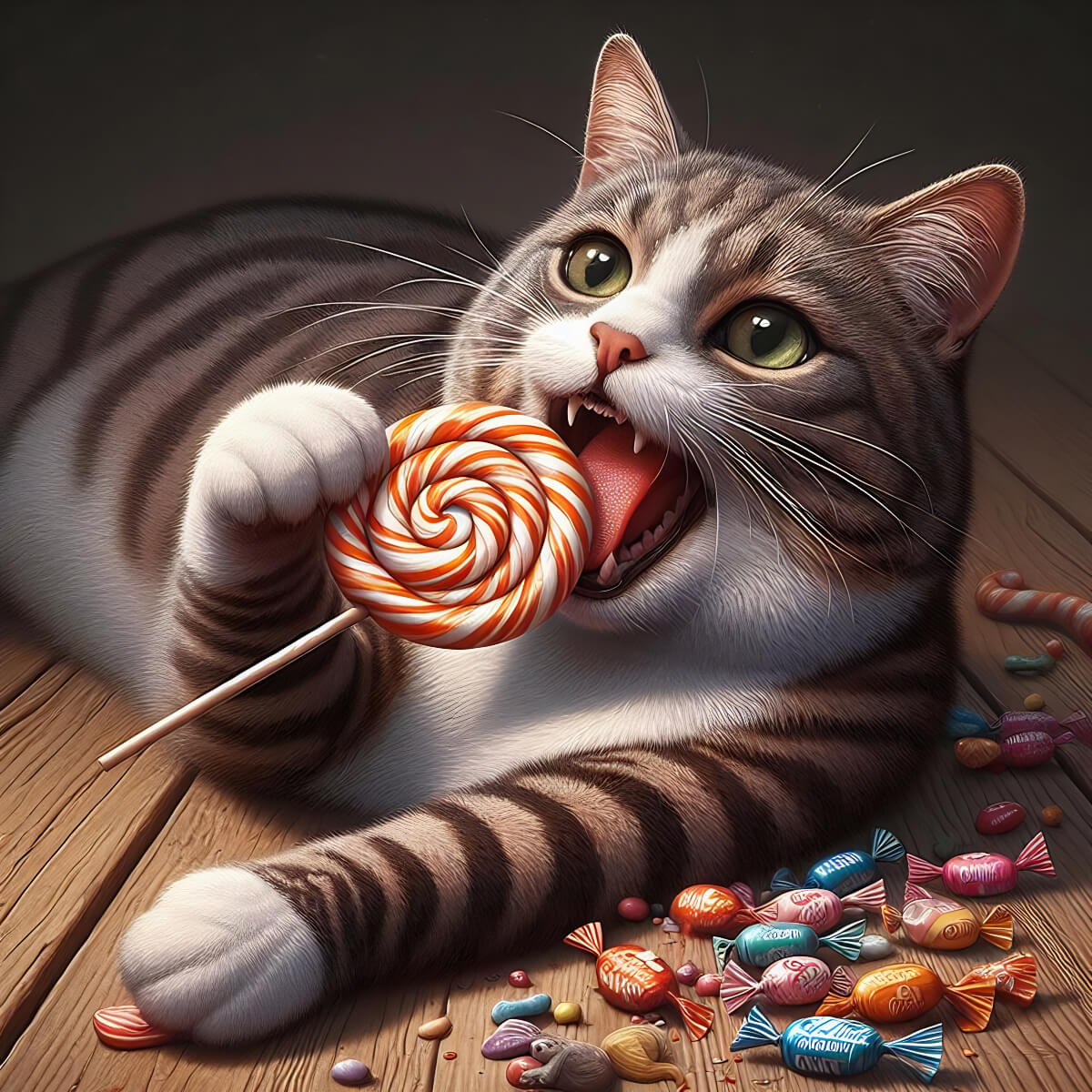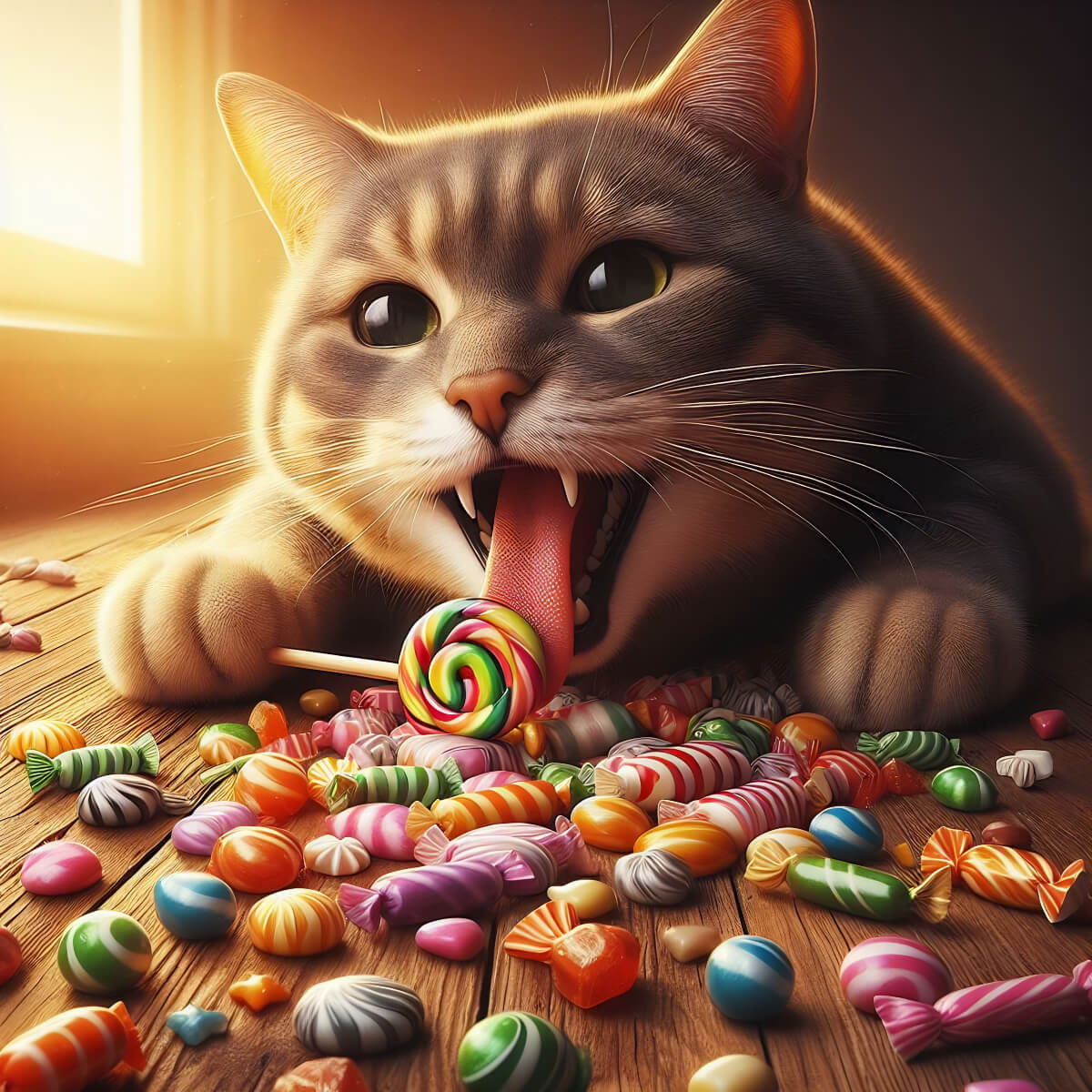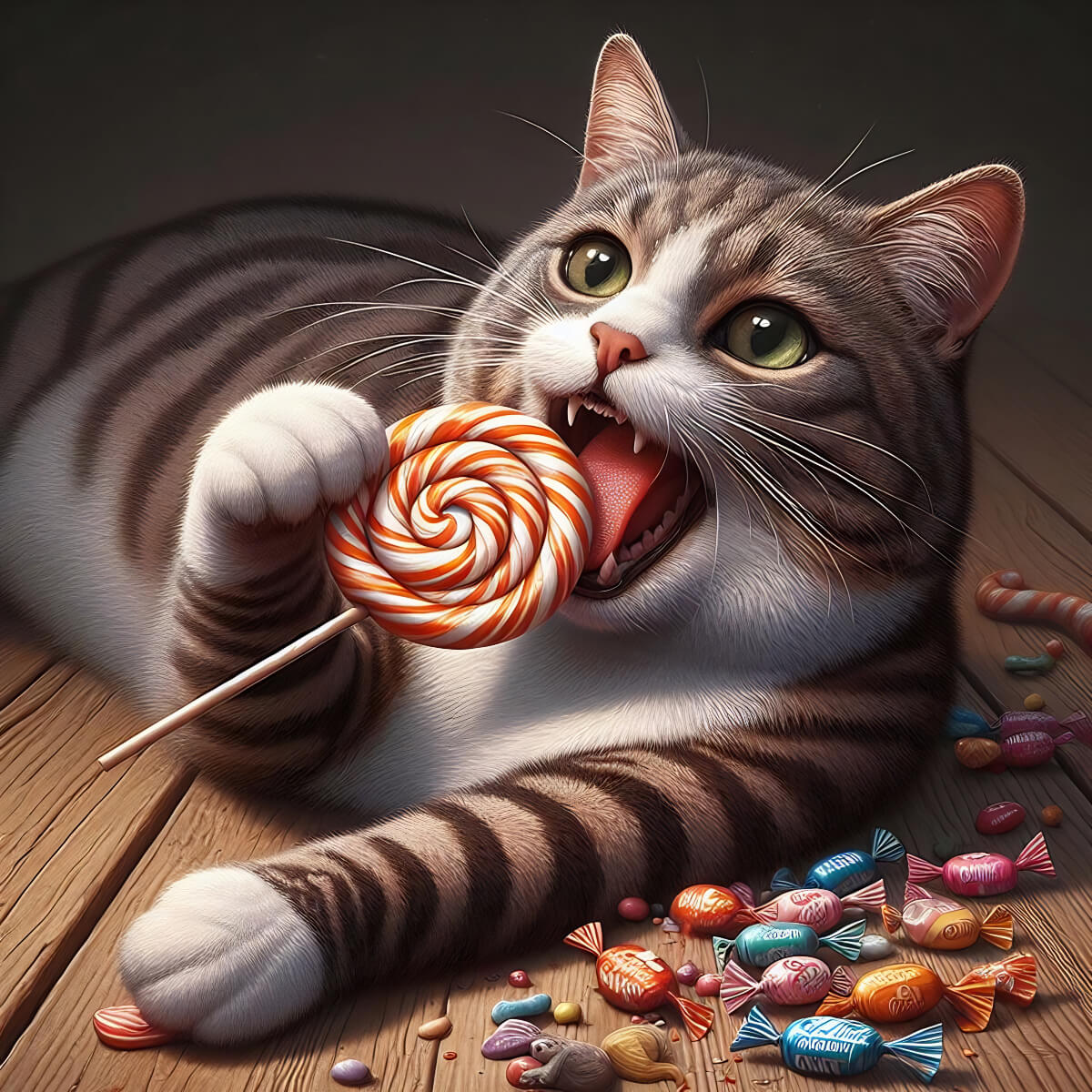Can Cats Eat Sweets and Chocolate?

Cats are well-known for their unique and often finicky eating habits. As caring pet owners, it's important to pay attention to what we feed our furry companions to keep them healthy. A frequent question that comes up is whether cats can enjoy sweets like candy and chocolate, which are favourites among many people. In this article, we'll look into how sweets and chocolate affect cats and whether these tempting goodies should be included in their diet.

Understanding a Cat's Diet
Cats are obligate carnivores, which means they primarily need meat in their diet. Unlike humans, they can't properly digest certain substances found in sweets and chocolate. Cats have unique nutritional needs, so their diet should emphasize high-quality protein sources to fulfil their energy requirements.
Sweets and Sugar
While cats don't have taste receptors for sweetness, some might still be attracted to sugary treats because of their fat content or appealing smells. However, too much sugar can cause health problems like obesity and diabetes in cats, similar to what happens in humans.
Additionally, certain sugar substitutes, such as xylitol, can be toxic to cats and should be strictly avoided. Furthermore, many store-bought sweets contain harmful ingredients for cats, including artificial sweeteners, preservatives, and high fat levels. Regularly giving these treats can result in digestive issues, pancreatitis, and other health concerns.
It's also important to note that whole sweets can pose a choking risk due to their shape, size, and slippery texture. They can quickly get stuck in a cat's throat.
The Dangers of Chocolate
Chocolate contains theobromine, a stimulant that impacts both the central nervous system and the cardiovascular system. While humans can metabolize theobromine effectively, cats (and dogs) do not have the necessary enzymes to break it down. Consuming chocolate can result in theobromine toxicity in cats, leading to symptoms like restlessness, an increased heart rate, tremors, and in severe cases, seizures or even death.
The concentration of theobromine is higher in dark chocolate than in milk chocolate, making dark chocolate especially dangerous for cats. Even small quantities can be quite risky, so it's essential to keep all chocolate products out of their reach.
This page contains affiliate links. As an Amazon associate, I earn from qualifying purchases.
Safe Alternatives
If you're keen on treating your cat, there are cat-friendly alternatives available on the market. Specialized savoury cat treats, which are formulated to meet feline nutritional requirements, can be a safe and enjoyable option. Some cats also enjoy small portions of cooked meat, such as chicken or turkey, as an occasional treat.
Whiskas Temptations with chicken & cheese is a very popular savoury treat for cats. Felix Goody Bag Treats are also very highly rated by customers and contain chicken, liver and turkey.
Cheese is usually safe for cats, although some may be lactose intolerant. One small cube occasionally should be okay, but giving a cat large portions of cheese is not recommended. Also, be aware that most cheeses contain a high amount of salt.
Conclusion
In conclusion, cats should not be given sweets and chocolate because of the serious health risks these treats can pose. Theobromine toxicity from chocolate, along with the negative effects of sugar and artificial additives, makes these foods inappropriate for cats.
As responsible pet owners, it's crucial to focus on your cat's health by providing a balanced and species-appropriate diet. Choose specially formulated cat treats or natural alternatives to ensure your feline friend enjoys a safe and satisfying occasional snack.
Always reach out to your veterinarian if you have any concerns about your cat's diet or if you think they may have eaten something harmful.
Can dogs eat sweets and chocolate?

Both of the cats eating sweets images on this page were created with AI and are free for reuse.